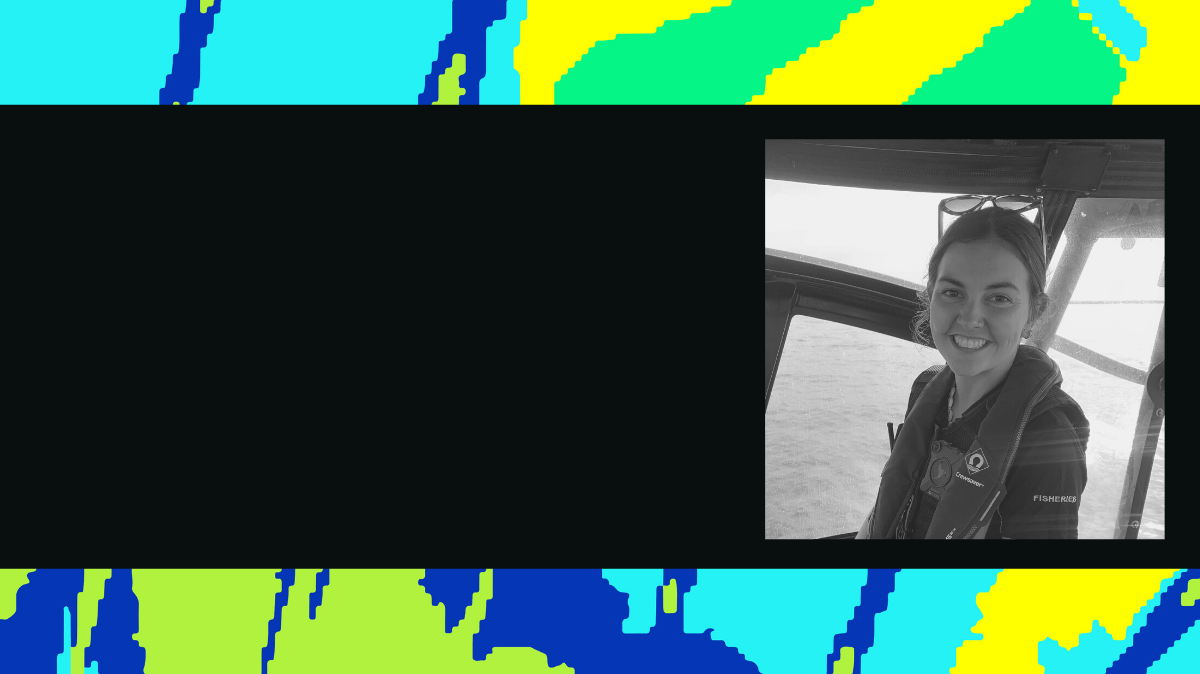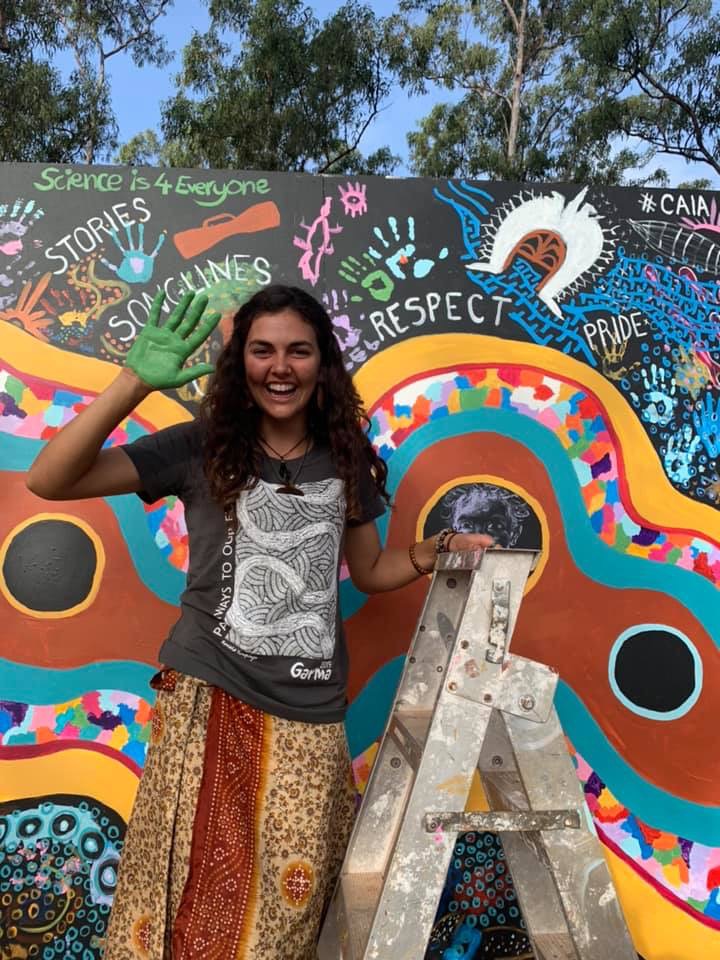Posted 18 Aug

Words by Walter Marsh.
“I always knew that I was Aboriginal, Torres Strait Islander, but I didn’t have that connection to my dad,” Adamson says of her formative years spent with her mother on Palm Island. “So I think my connection to Country has always [been] something that was quite spiritual, and something that I have always leaned upon, because I had that feeling and connection my whole life, without having that connection to my physical Torres Strait family. Growing up in community, and learning about the land, taking and harvesting from the land, and cultural practices of agriculture, traditional fishing. Learning that growing up is something I really valued and nurtured.”
More recently, Adamson has been putting those values into action by balancing a Masters in Environmental Policy and Management with full time work as a Sea Ranger and Fisheries Compliance Support Officer for the Department of Primary Industries and Regions (PIRSA).
“We’ve got a lot of laws and rules around conservation, especially in the taking of resources — because our fishing and marine ecosystems are a finite resource, [so] those systems need to be managed,” she says of her current work. “My job is making sure people carry through with the science and policies that are set by the government. But another part of my job is working with Aboriginal communities, and helping to address their needs in terms of traditional fishing, and communicating with them as an Aboriginal person about the ways we need to sustainably look after the ocean — obviously with their input and their own ideas and views.”
When much of the regulatory framework that managing our fisheries was originally put in place, Adamson says, little consideration was given to the needs of First Nations people — despite the key role that fishing and marine life have played for many communities before and after colonisation. “They sort of divided the resource into commercial fishing and recreational fishing [but] they left out Aboriginal fishing,” she says. “But it’s changing over time, and it’s been incredible to see the changes being made in this space, and now be able to be a part of that journey forward.”
For centuries the prevailing Eurocentric view of the oceans has been as one of conquest and extraction — a resource to be exploited for short-term profit without considering the complexities and long-term survival of marine ecosystems. With many of our modern scientific traditions born out of that worldview, charting a new path that draws on Indigenous knowledge honed over thousands of years is an ongoing challenge for professionals like Adamson.
“It’s something that I feel like I walk in two worlds with,” she says. “It’s a daily struggle that I’m constantly reminded of. There’s this longing to just live in harmony with the land, go back to community and immerse myself in culture and live old ways with our old people. But in the current time and place that we’re in, and growing up around these western constructs, I guess there’s a big part of me that knows these western places are difficult spaces for Aboriginal people to be in. [But] if all of us decide that they’re difficult for us to be in and contribute, then we’ll never be represented at the table, we’ll never have our voices heard — we’ll never have opportunities to showcase how we’d like our land to be managed, and the ideas our old people want to put forward just won’t get listened to.”
As ecosystems around the world face an alarming series of tipping points, time is of the essence. “The whole impact of climate change is really concerning to me — especially when we see people come in with less and less fish,” she says, citing an old aphorism she heard growing up: that you should look forward seven generations, and consider what your impact might be on their world.
“It’s something that makes me quite nervous — that giant cascade of all the little bits and pieces that add up to the mass of climate change, the way that certain species start to cascade down or change. [In] some parts of governance policy, things are looked at as individual issues rather than a whole system; the environment’s a really incredibly delicate balance of a million different systems operating functionally together, and it seems really effortless if you aren’t paying attention to it.”
In this respect, western science has a lot to learn from First Nations peoples, who have managed land and marine environments sustainably for thousands of years.
“The struggle I think is showing the holistic approach to how intricate these systems all are — and how dependent they all are on one another, for the survival of our planet.”
